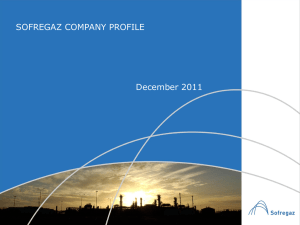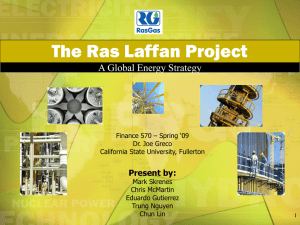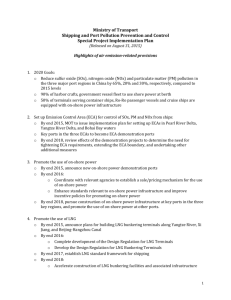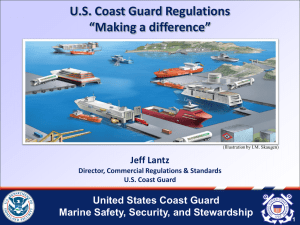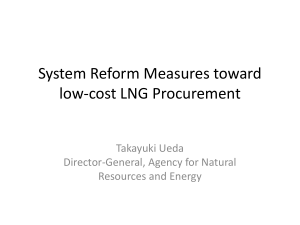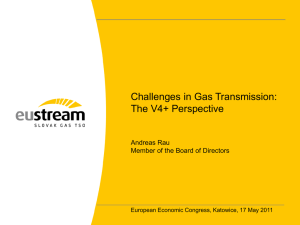Klaipėda LNG Terminal
advertisement
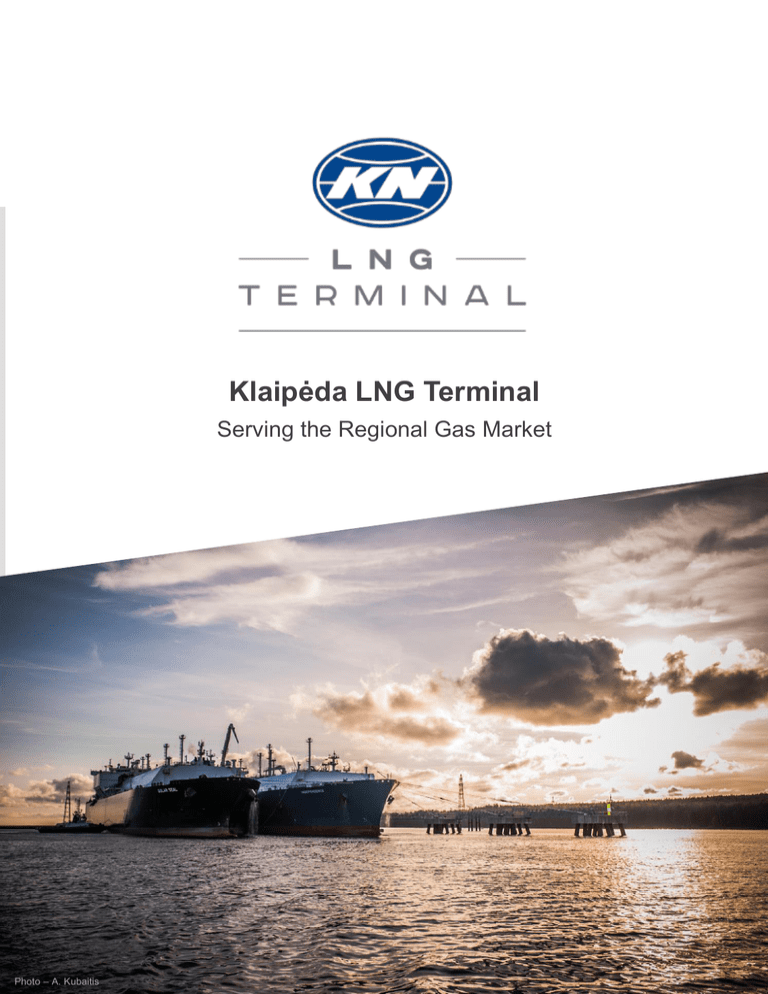
Klaipėda LNG Terminal Serving the Regional Gas Market Photo – A. Kubaitis 1 Energy Security for the Whole Region The European Commission has released an EU energy security strategy on 28 May 2014. The objective of the new energy strategy is to increase the energy security of Europe’s energy supply. Energy security can be implemented via following measures: • completing the internal energy market with common legislative framework including third party access to the infrastructure; • strengthening emergency and solidarity mechanisms and protecting critical infrastructure. The LNG terminal in Klaipėda is the first gas infrastructure object to be completed in order to increase the energy security in Lithuania, other Baltic States and Finland. According to the stress tests, performed by the European Commission in the fall of 2014, the Klaipėda LNG Terminal significantly increases the energy security in Lithuania. Third party access will spur competition The terminal will help to diversify energy sources Ensures security of energy supply for the Baltic countries Import prices will reflect the global market price level Other countries are also encouraged to use the capacities of the terminal in order to diversify energy sources. Photo K.Fedirka (FotoSkrydis) 2 Impact On the Regional Gas Market LNG auto-trailer reloading markets LNG ship reloading markets LNG regasification markets Baltic-connector Markets accessible starting the 1st of January, 2015 Markets accessible after regional interconnections are finished GIPL Markets accessible after on-shore LNG reloading station is finished (expected by the end of 2016) 1 Energy security for the Baltics states and for Finland/Poland after the interconnections are completed 2 Opportunity for market players to import gas from the global market 3 Gas storage in Inčukalns creates an opportunity to capitalize on season LNG price fluctuations 4 Availability to bring in spot cargoes and break-bulk into smaller batches 3 New Services in the Region Brief description of services Services Starting from the 1st of January, 2015 Planning to start by the end of 2016 LNG reloading station LNG regasification • Foundation capacities • Seasonal capacities • Seasonal capacities • Spot capacities • Spot capacities • Tariff – 1,14 EUR/MWh • • • LNG ship reloading LNG on-shore reloading Tariff – 0 EUR/MWh (costs channeled via gas transmission tariff) Continued regulated minimum send-out – ensuring that the Terminal is constantly cooled-down and ready for service. Terminal capacities are available on the regulated Third Party Access via open capacity allocation procedure. • On-shore LNG reloading station will constitute to break-bulking large LNG cargoes. • LNG bunkering, LNG auto-trailer and LNG container reloading. Business model Theoretical capacities of ~4bcm/annum Trader • First trader in the terminal • Reserved capacities starting from the 1st of January, 2015 • Signed LNG supply contract with Statoil (0,54bcm/annum) Trader Trader Possibilities for other traders Possibilities for other traders Pricing – price indexed at NBP 4 On-shore LNG Reloading Station 2016 Planned LNG terminal/reloading station Potential demand Current demand Liquefaction plant To Karlshamn 2016 500 km To Kiel 2015 Main drivers for on-shore LNG usage: • Local regasification • • • lower emissions (COx, NOx, SOx) • lower operating and maintenance costs • safe storage and transportation. Remote users Vulnerable users L-CNG fueling stations • Marine fuel • Heavy trucks and public transportation LNG fuel 5 Contacts: paslaugos@sgd.lt Tel. +370 46 297008 +370 46 297003 SC Klaipėdos nafta Burių st. 19, P.D. Box 81 Klaipėda, LT92276 Baltijos ave. 40 Klaipėda, LT92276 Gedimino ave. 33/17-2 Vilnius, LT01104 Tel. +370 46 391 772 Fax. +370 46 311 399 www.oil.lt www.sgd.lt 6

